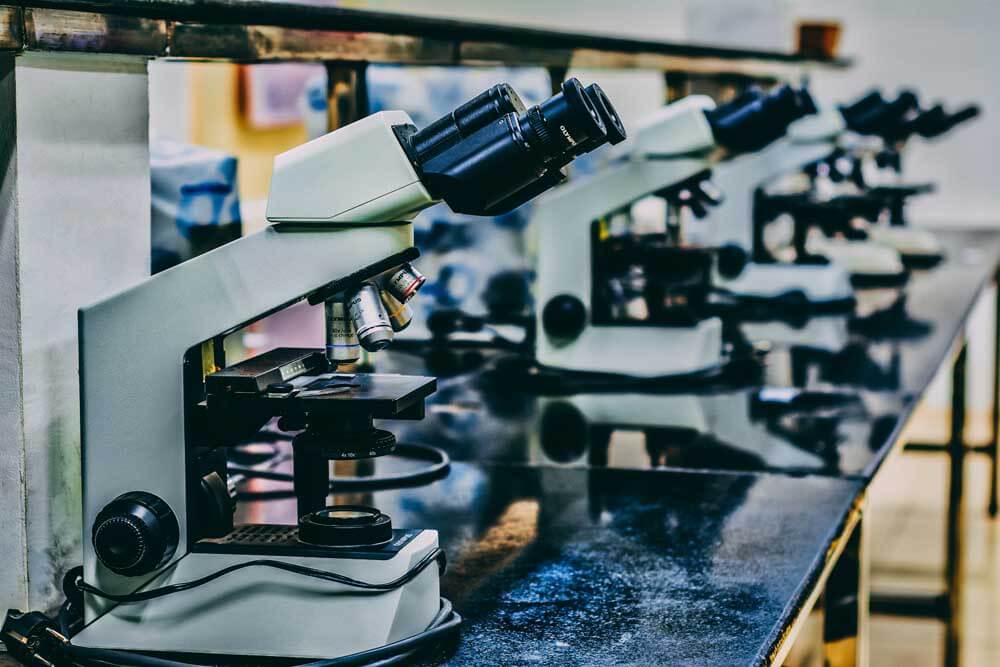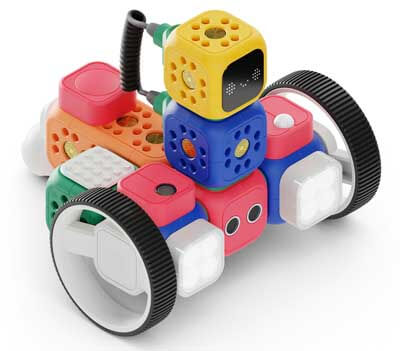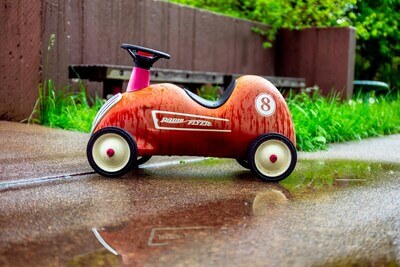Unlocking the Secrets: Science Skills for Kids & Data Analysis Discoveries
Unlock the secrets of scientific discovery with essential strategies for young minds. From fostering curiosity to transforming data into mind-blowing insights, this article equips parents and educators with practical tips to cultivate a love for science in children. Dive into the world of analysis, interpretation, and hands-on experimentation to nurture the next generation of scientific investigators.

- I. Introduction: Why Science Skills Matter for Young Minds
- II. Core Science Skills Every Junior Investigator Needs
- III. Fun and Engaging Activities to Develop Science Skills
I. Introduction: Why Science Skills Matter for Young Minds
The Power of Curiosity: Sparking a lifelong love of learning
Have you ever seen a child captivated by a raindrop trickling down a windowpane or their eyes gleaming with an endless stream of "how does that work?" inquiries? That insatiable curiosity serves as the fertile soil where a lifelong appreciation for science takes root.
Think beyond mere memorization of facts. Curiosity acts as the seed from which a fervor for exploration blossoms. When children harbor a curiosity for science, they naturally assume the role of investigators, persistently questioning, dissecting their surroundings, and thirsting for understanding. This intrinsic urge turns learning from a mundane task into an exhilarating pursuit of knowledge.
By nurturing their scientific curiosity, we aren't merely imparting knowledge about the fundamental elements of the universe; we're furnishing them with indispensable tools for their future endeavors. The process of questioning, experimenting, and scrutinizing information cultivates critical thinking, problem-solving prowess, and a profound fondness for discovery—a potent blend that extends far beyond the confines of the classroom.
So, how do we cultivate this thirst for scientific knowledge and kindle a passion for learning in young minds? The solution lies in crafting an engaging and interactive environment. In the ensuing section, we'll delve into strategies to transcend traditional textbooks and embrace hands-on activities that animate the world of science!
Building a Foundation for Future Success: Science in everyday life
Science isn't confined to the four walls of a classroom—it permeates every aspect of our lives! Whether you're balancing on a bike (hello, physics!) or whipping up some delicious cookies (thank you, chemistry!), science is there, quietly orchestrating our daily routines.
By encouraging children to delve into the realms of science, we're not just handing them a ticket to good grades; we're gifting them with life-long superpowers! These skills—problem-solving, critical thinking, and information synthesis—are akin to a superhero suit, empowering them to conquer any challenge they encounter.
Imagine a world where children approach obstacles with a scientific mindset. They ask questions, experiment with different approaches, and ingeniously find solutions. This knack for critical thinking and problem-solving is a priceless asset, regardless of their aspirations—be it crafting robots, practicing medicine, or venturing into entrepreneurship!
In our rapidly changing world, where adaptation is key, science skills have never been more vital. Science education goes beyond exam scores; it's about nurturing essential life skills such as critical thinking, problem-solving, and informed decision-making. When we incorporate science into our daily routines, the world around us blossoms into an enchanting realm of discovery. Whether we're observing the growth of plants or brainstorming water conservation methods, mundane moments morph into thrilling scientific escapades.
Get ready for some thrilling ideas in the upcoming sections! We'll unveil hands-on activities that prove science is everywhere around us, making learning an enjoyable and enlightening experience. By fostering curiosity and relevance in science from an early age, we're shaping our children into lifelong learners, poised to conquer any challenge that comes their way!
Beyond Textbooks: Hands-on activities for a fun and engaging journey
In today's dynamic world, where adaptability and innovation reign supreme, science skills are indispensable for young minds. While traditional methods of learning, such as textbooks, lay a foundation, the true essence of scientific understanding blossoms through experiential learning.
The Power of Curiosity: Sparking a lifelong love of learning lays the groundwork for exploring science beyond the classroom. Building upon this foundation, we delve into the practical applications of scientific knowledge with Building a Foundation for Future Success: Science in everyday life.
Beyond Textbooks: Hands-on activities for a fun and engaging journey embodies the next step in this educational odyssey. Here, we transcend rote memorization and passive learning, immersing young learners in interactive experiences that ignite their curiosity and foster a deeper understanding of scientific principles.
Engaging in hands-on activities, children embark on an enthralling voyage of exploration and revelation. From conducting experiments to constructing models and solving puzzles, these endeavors provide a vibrant and interactive method of learning that deeply resonates with young minds.
Join us as we venture beyond the confines of traditional learning methods and embark on an exhilarating journey of hands-on exploration. Together, let's unlock the boundless potential of young minds and cultivate a lifelong passion for learning through the magic of hands-on science activities.
II. Core Science Skills Every Junior Investigator Needs
A. Observation: Sharpening those detective senses
To really boost your observational powers, a magnifying glass can be an invaluable tool. It helps bring the hidden details of the natural world into clear view, making the minute aspects of objects fascinating and more informative. Observing a tiny insect’s legs or the veins in a leaf through a magnifying glass can reveal incredible patterns and structures, sparking curiosity and leading to exciting scientific inquiries.
Check out different types of magnifying glasses to enhance your scientific observations. Available in multiple sizes and magnifications, they are great for tasks from reading small print to exploring the intricate patterns of a flower.
By sharpening your observational skills, you're not just learning to see more; you're learning to think and understand more deeply. So grab your magnifying glass and let every observation be a step toward greater scientific discovery.
B. Asking Questions: From "Why?" to "How?" - Fueling scientific inquiry
Have you ever stared at a swirling cloud and wondered where it goes? Or maybe you've marveled at a spider's web and wanted to know how it's built so perfectly? Asking questions is a superpower that every junior scientist possesses! In this section, we'll crack the code on how your questions can fuel amazing discoveries. We'll delve into:
"Why?" vs. "How?": These two types of questions may appear alike, but they lead to distinct pathways of discovery. Learn how to use each one to become a master investigator.
Observations Turned Detective Work: The world around you is full of clues! We'll show you how to turn your observations into questions that lead to exciting science experiments.
The Secret Sauce of "Great" Scientific Questions: Not all questions are created equal. Discover the key ingredients of a powerful scientific question that will unlock groundbreaking discoveries.
So, get ready to transform from a curious youngster into a science sleuth! Let's embark on a scientific adventure fueled by your unstoppable questions!
Curiosity serves as the catalyst for scientific breakthroughs. For young investigators, cultivating the skill of inquiry is essential for unraveling the world's mysteries. Whether pondering the basic query "Why is the sky blue?" or delving into the complexities of "How does a plant grow?", Asking questions signifies the first step in the scientific journey. This aptitude converts everyday curiosity into methodical exploration, laying the groundwork for deeper comprehension and innovative discoveries.
The Significance of "Why?"
Commencing with "why" prompts budding scientists to probe into the underlying causes of phenomena. This mode of inquiry fosters critical thinking about observed causes and effects. For instance, inquiring "Why do leaves change color in the fall?" initiates an exploration into the intricacies of photosynthesis and the function of pigments in plants. Encouraging children to pose "why" questions aids in building a solid knowledge base and nurturing a profound sense of curiosity.
Moving on to "How?"
Transitioning to "how" inquiries represents a leap forward in the quest for understanding. These investigations delve deep into unraveling processes and mechanisms. When a child wonders, "How is a rainbow created?" they venture into the realm of comprehending light refraction, reflection, and dispersion. "How" queries play a crucial role in conducting experiments and seeking practical solutions. They propel young scientists beyond passive observation, fostering active engagement in hands-on learning and experimentation.
Calling All Curious Critters: Become Science Superstars!
Do clouds tickle the sky? How does a tiny seed become a skyscraper tree? If you ever find yourself asking these mind-blowing questions, then you've got the secret superpower of a junior scientist: CURIOSITY! Get ready to unlock the mysteries of the world by becoming a question-asking champion!
Question HQ: Make your home a place where questions rule! Set up "Curiosity Corners" during meals, car rides, or bedtime for you and your little scientists to share their wonders. Let their questions fly like fireworks!
Be a Question Explorer Too!: Show your own curiosity! Ask questions about the world around you and become a teammate in finding answers.
Don't Be a Spoiler!: Instead of giving the answer right away, use questions like "Wow, that's a super question! What do you think might happen?" to spark deeper thinking.
Fuel the Question Fire: Books, documentaries, and science kits are like treasure chests filled with answers and even more questions! Provide these tools to help your little investigators on their quest for knowledge.
From Curious to Creator: Questions lead to awesome adventures! Once a question pops up, it's time to get creative. Help your young Einstein's design an experiment to test their ideas. Like, if they ask "How do different liquids affect plants?" assist them in creating a mini-garden and observing the effects of using water, juice, or soda! It's all about discovering and learning new things.
By encouraging questions, we're helping the next generation of scientists become amazing explorers. Remember, every "why" and "how" is a stepping stone on their scientific journey. So, let's celebrate curiosity and keep those questions coming! After all, every big discovery started with a tiny question.
D. Data Collection: Recording Observations and Keeping Track of Discoveries
Science Starts with Data!
Have you ever had a cool idea while experimenting, but then forgotten the details later? That's where data collection comes in! It's the secret weapon of young scientists, allowing them to capture their discoveries in a way that unlocks hidden patterns and lets them share their findings with the world.
Data: From Fleeting Glimpses to Powerful Insights
Imagine studying how plants grow. Just remembering if they looked "taller" isn't enough. By recording data like height, leaf size, and number of leaves over time, you can see trends and make connections that watching alone might miss. This careful record-keeping turns fleeting observations into reliable information that can be analyzed and shared, making your discoveries truly powerful.
How to Record Data Effectively
Ever wish your science experiments were so awesome they defied the laws of physics? The secret weapon you need is mastering data recording!
Consistency is Your Kryptonite Shield: Imagine results so reliable, they could withstand anything! That's the power of consistency. Use the same measuring and recording methods throughout your experiment. It's like having a secret code that unlocks super-reliable results.
Details are Your X-Ray Vision: Don't just see the "what," see the "when" and "how" too! Record the date, time, and any undercover influences like weather that might affect your findings. Don't forget to note any variables that could play a role!
Become a Visual Superhero: Sketches, diagrams, and charts are your allies! They can turn confusing observations into clear pictures and even reveal hidden patterns that plain text might miss. Make your data jump off the page!
Review and Reflect: Be a Data Sherlock: Don't just collect data and let it gather dust! Become a data detective by reviewing your findings. Look for hidden clues - patterns, trends, or maybe even something unexpected! This detective work can lead to exciting new questions and fuel your next scientific adventure!
Tools for Effective Data Collection
Notebooks: A simple notebook can serve as an excellent tool for recording observations. Young scientists can create a section for each experiment with date and time stamps.
Printable Science Journals: To make data recording more structured and accessible, use free printable science journals designed for young investigators. These journals often come with pre-made templates for recording different types of data, which can help guide young learners in their data collection process.
Digital Tools: For tech-savvy kids, digital tools such as tablets and smartphones can be used to record observations using various apps that organize data efficiently and allow for easy sharing and collaboration.
Bonus Tip: Download Free Printable Science Journals
Supercharge your junior scientist's data collection skills! Download free printable science journals – these are like turbo boosters for young researchers.
Why are these journals awesome?
Organized Chaos: Pre-formatted pages keep observations neat and tidy, no more science-splosion in the notebook!
Reflection Revolution: Prompts help young minds ponder their discoveries, sparking deeper understanding.
Sketch It Out!: A special section for drawings provides a place to visually capture those "aha!" moments.
These journals are the ultimate tools for documenting a scientific adventure! By making data collection a breeze, young scientists not only learn to conduct experiments but also build crucial skills:
Understanding their findings: Analyzing data becomes a natural part of the process.
Building on knowledge: Organized records make it easy to connect past experiments to new ones.
Meticulous minds: Attention to detail becomes second nature, fostering a thorough approach to everything they do.
Download these free printables and unleash the inner data whiz in your young scientist!
E. Analysis and Interpretation: Making Sense of the Results
Your young scientist has a notebook full of observations – that's fantastic! But the real journey of discovery begins now, with analysis and interpretation! This is where the rubber meets the road, transforming raw data into groundbreaking revelations.
Understanding Analysis
Imagine it like solving a puzzle. By analyzing their data, young scientists can piece together hidden patterns, like sneaky trends or even surprising anomalies. It's all about decoding the message their findings hold about the world around them.
Take, for instance, measuring plant growth under different lighting conditions. Analysis is like comparing the growth rates of each plant, like which one became a champion grower? This often involves some detective work with math, like calculating averages or percentages. They might even create some cool graphs to visualize the trends clearly.
By cracking the code of their data, young scientists don't just understand their experiments better – they unlock the secrets of the world itself! It's a thrilling adventure, and analysis is the key that unlocks the door to amazing discoveries.
The Role of Interpretation
Interpretation goes hand-in-hand with analysis; it's about explaining the why behind the data. This step challenges junior scientists to think critically about their findings. For instance, if the data shows that plants grow taller in red light than in blue, interpretation involves hypothesizing why red light has this effect, perhaps relating it to aspects of photosynthesis discussed in science classes.
Numbers whispering secrets? You hold the key!
Just like scientists who discovered penicillin or cracked the code on plant growth, you can transform those scribbles into mind-blowing discoveries. Here's your mission guide:
1. Become a Data Detective: Hunt for hidden patterns! Are there surprising connections, unexpected twists, or maybe even anomalies hiding in your data? Finding these patterns is crucial for unlocking the secrets your data whispers.
2. Unleash the Graph Attack!: Raw data can be a tangled mess. But fear not, young scientist! Graphs and charts are your data superheroes. These visual tools show how different factors work together, revealing hidden trends you might otherwise miss. Think of them as data translators, making everything crystal clear.
3. Fuel Your Curiosity! Analysis isn't just about finding answers, it's about asking even more questions! Did something unexpected happen? Do your results challenge your initial hunch? What could explain these findings? Let your curiosity be your guide and keep questioning like a pro!
4. See the Bigger Picture: Did other scientists explore similar things? Compare your results with existing research, experiments your classmates did, or even your own past adventures in science. This comparison can validate your findings or open doors to exciting new perspectives.
5. Talk Science! ️Sometimes, the best way to understand something is to talk about it. Discussing your data with friends, teachers, or family can spark new ideas and help you see things from a different angle. It's like brainstorming with your own personal brain trust – a powerful tool for unlocking even deeper understanding.
By following these steps, you'll be well on your way to turning raw data into groundbreaking discoveries! Get ready to embark on a thrilling scientific adventure where every experiment is a step closer to unlocking the mysteries of the universe!
Making It Fun and Engaging
To make analysis and interpretation more enjoyable for young scientists:
Use Interactive Tools: Leverage software and apps for graph creation and data visualization to make the analysis process more interactive and fun.
Role-Playing: Encourage children to role-play as different scientists discussing their experimental results. This activity helps them understand different perspectives and reinforces their grasp of the data.
Create a Science Blog or Journal: Motivate them to write about their findings and interpretations in a blog or science journal. This not only organizes their thoughts but also enhances their communication skills.
By mastering analysis and interpretation, young scientists learn to move beyond simply collecting data to truly understanding and explaining it. This is where real scientific insight happens, and young minds begin to see how they can contribute new knowledge to the world.
F. Communication: Sharing Findings and Building Teamwork Skills
Communication acts as the essential link that connects scientific breakthroughs to the wider world. Simply conducting experiments and analyzing data isn't enough; junior investigators must also effectively communicate their findings. This skill is crucial as it not only validates their discoveries but also fosters collaboration and teamwork, both pivotal for scientific progress.
Why Sharing Discoveries Matters
Sharing findings empowers young scientists to enrich the collective pool of knowledge. By communicating their discoveries, they inspire others, seek feedback, and potentially spark fresh ideas or research paths. Moreover, sharing findings nurtures critical thinking as junior investigators refine their ability to express their thoughts and substantiate their conclusions.
Collaboration serves as the bedrock of scientific exploration. Through partnerships with peers, individuals facilitate the exchange of ideas, fuel creativity, and refine problem-solving skills. Collaborative efforts enable budding researchers to embrace diverse viewpoints, harnessing collective strengths to yield more robust and innovative outcomes.
Effective Communication Strategies
Clarity in Presentations: Guide junior scientists in articulating their findings with precision and brevity, adapting their language to suit their audience. This could involve crafting posters, slideshows, or delivering oral presentations.
Peer Review Sessions: Initiate sessions where aspiring researchers share their findings with peers, encouraging constructive feedback. This not only sharpens communication skills but also nurtures a culture of collaborative support.
Written Documentation: Encourage the crafting of scientific reports or articles to document experiments, observations, and conclusions. This practice enhances writing proficiency and fosters logical thought organization among young scientists.
Active Listening: Stress the importance of attentive listening during group discussions and presentations. Encourage junior investigators to pose questions, seek clarification, and engage respectfully with their peers' ideas, fostering a richer collaborative dialogue.
Encouraging a Culture of Sharing
Imagine your science project lighting up a room full of curious minds! Sharing your work isn't just about bragging (although, that's totally okay too!). It's about inspiring others and becoming a science superstar! Here's how:
1. Showcase Your Genius! Science fairs aren't just for grown-up scientists. Organize presentations in class, or create online forums to share your findings. The more you share, the more you inspire others! Don't forget to celebrate your classmates' awesome work too – science is all about teamwork!
2. Teamwork Makes the Dream Work! Remember, even the coolest discoveries often involve a team effort. Think about it – sharing ideas, combining strengths, and working together allows you to achieve way more than you could alone. Imagine the incredible things you can accomplish by joining forces with your fellow science enthusiasts!
III. Fun and Engaging Activities to Develop Science Skills
A. Backyard Science: Exploring the wonders of nature
Your backyard is a natural laboratory full of scientific discovery opportunities. Engaging in backyard science lets children explore the wonders of nature, fostering curiosity and a love for learning beyond the pages of a textbook.
Step outside and ignite your inner scientist! Your backyard transforms into a remarkable science lab teeming with discovery. Become a nature detective – observe buzzing insects, identify vibrant plants, and track the ever-shifting weather. Bug hunts morph into exciting explorations of biology, while magnifying the intricate details of leaves and flowers fuels curiosity about the natural world.
Science thrives on curiosity and exploration. Encourage budding researchers to gather unique leaves, colorful pebbles, or fascinating feathers, building a personal treasure trove of nature's wonders. Keeping a nature journal allows them to document their discoveries, chronicle seasonal changes, and spark questions about what they observe.
Learning by doing is the key to unlocking scientific knowledge! Design and build a bird feeder to attract feathered friends, fostering an understanding of their role in the ecosystem. Plant a mini-garden to witness the magic of plant growth and the importance of pollinators. Create a simple weather station to collect data and become citizen scientists, contributing to a broader understanding of our environment.
Participating in backyard science not only equips children with essential science skills but also fosters a deeper appreciation for the environment. This hands-on approach turns outdoor play into a meaningful educational experience, nurturing a lifelong passion for learning and nature.
B. Kitchen Chemistry: Everyday ingredients transformed into scientific experiments
Step into your very own kitchen crucible – a place where everyday ingredients transform into exciting science experiments! Ditch the fancy lab coats – common household items unlock a world of fascinating chemical reactions, physical changes, and scientific wonder.
Caution: The chemical activities should always be conducted under the supervision of parents or an older sibling to ensure safety.
Ignite Curiosity with Simple Experiments:
Imagine a fizzy eruption as baking soda and vinegar join forces, or witness the magic of salt lowering ice's freezing point! These captivating activities introduce young minds to the captivating world of chemistry. They not only showcase scientific principles in action but also spark critical thinking and problem-solving skills.
Learning Through Exploration:
Kitchen chemistry is a playground for budding scientists! They can experiment with different ingredients, test their ideas, and observe the results in real-time. Measuring precisely, following procedures carefully, and recording observations are all essential scientific skills honed through these experiments. This focus on accuracy and detail lays a strong foundation for future scientific endeavors.
From Baking to Scientific Adventures:
Transform everyday kitchen tasks into epic scientific adventures! Projects like crafting slime, baking bread, or cultivating rock candy crystals showcase the magic of chemistry happening right before your eyes. These activities not only unveil the secrets behind chemical reactions and physical processes but also demonstrate the relevance of science in our daily lives.
By turning your kitchen into a scientific wonderland, you ignite a passion for exploration and experimentation. Witnessing the magic of science firsthand makes learning tangible and memorable, fostering a lifelong love of discovery in your young scientist!
C. Building Challenges: Engineering skills with a playful twist
Playtime takes flight! Transform everyday materials like popsicle sticks, spaghetti, and even marshmallows into building blocks for exciting engineering challenges. These projects are more than just fun – they're springboards to a fascinating world! Kids encounter core engineering concepts like structures, forces, and mechanics in a way that's both engaging and educational.
Building Confidence, Brick by Brick:
Building challenges are more than meets the eye. They're a platform for "learning by doing." Children experiment with different designs, test their ideas, and see their creations come to life. This hands-on approach encourages trial and error, fostering resilience and adaptability – essential skills for any future problem-solver!
Building Together, Inspiring Together:
Building challenges aren't solo endeavors! Teamwork and communication blossom as children collaborate on engineering problems. Whether it's constructing a towering bridge or designing a marshmallow launcher, working together strengthens their understanding of engineering principles and the power of collaboration. This fosters a spirit of teamwork and inspires them to become the next generation of innovative problem-solvers!
Safety First, Fun Always!
Remember, with a little adult supervision (parents or older siblings!), these playful engineering challenges become safe and enjoyable learning experiences. By integrating fun and creativity into the world of engineering, we can ignite a lifelong passion for the field and nurture the next generation of innovators!
Dive into the wealth of knowledge within "44 Essential Kids' Skills: Fueling Future Success and Opportunities", where we unfold the key abilities essential for your child's overall development.
Written by: Administrator
Published on:
Last updated on:
You May Also Like:
Post a Comment
Join the conversation and share your thoughts on this article. Your comments add depth and perspective to our content, fostering a rich exchange of ideas.



